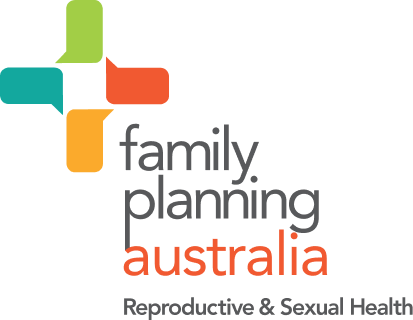As women age, they may experience a marked decrease in sexual activity and interest in sex than men. They may also experience less distress than men or younger women with the same symptoms, which may well reflect various psychosocial factors. For women, life stressors, contextual factors, and past sexuality and mental health problems are more significant predictors of older women maintaining their sexual interest than physiological status alone., , These include the presence or absence of a partner, their health, and their relationship and life satisfaction.
The clinician’s role is to evaluate both psychosocial factors and the physical status of patients. Questions you might ask to explore any difficulties being experienced in sexual functioning include:
“Some people find their sexual functioning has changed as they age. Has this happened for you?”
“Many people explore intimacy in their relationships in other ways if they experience any sexual problems or difficulties with intercourse. Is this something you have considered?”
Normal changes in sexual function in older women can include:
decreased clitoral engorgement
decreased vaginal lubrication
decreased breast swelling
decreased vasovaginal congestion
diminished preorgasmic sweating
diminished orgasm intensity
vulvovaginal atrophy related to diminished oestrogen levels
Common diseases in ageing and their treatments may also impact on sexual ...
Buy now
1.
Masters W, Johnson VE. Human sexual inadequacy. Boston Little, Brown & Co; 1970.
Close
2.
Kaplan H. Disorders of Sexual Desire and Other New Concepts and Techniques in Sex Therapy: The New Sex Therapy. New York: Brunner/Hazel Publications; 1979.
Close
3.
American Psychiatric Association. Diagnostic and statistical manual for mental disorders: DM 2. 2nd Washington APA; 1968.
Close
4.
Basson R. The Female Sexual Response: A Different Model. Journal of Sex and Marital Therapy 2000;26(1):51-65.
Close
5.
Badcock P, Smith AM, Richters J, Rissel C, de Visser RO, Simpson JM, Grulich AE. Characteristics of heterosexual regular relationships among a representative sample of adults: the Second Australian Study of Health and Relationships. Sexual Health. 2014;11(5):427-38.
Close
6.
Rissel C, Richters J, Grulicj AE, de Visser RO, Smith AMA. Sex in Australia. Australian and New Zealand Journal of Public Health. 2003;27(2):101-256.
Close
7.
Rosen R, Lane RM, Menza M. Effects of SSRIs on sexual function: a critical review. Journal of Clinical Psychopharmacology 1999;19(1):67-85.
Close
8.
Manolis A, Doumas M. Antihypertensive treatment and sexual dysfunction. Current Hypertensive Reports. 2012;14(4):285-92.
Close
9.
Peugh J, Belenko S. Alcohol, drugs and sexual function: a review. Journal of Psychoactive Drugs 2001;Jul-Sep 33(3):223-32.
Close
10.
Cutler A. Sexual dysfunction and antipsychotic treatment Psychoneuroendocrinology 2003;28(Suppl 1):69-82.
Close
11.
Knegtering H, Boks M, Blijd C, Castelein S, van den Bosch RJ, Wiersma D. A randomized open-label comparison of the impact of olanzapine versus risperidone on sexual functioning. Journal of Sex and Marital Therapy. 2006;Jul-Sep; 32(4):315-26.
Close
12.
McKay A. Sexuality and substance use: The impact of tobacco, alcohol, and selected recreational drugs on sexual function. Canadian Journal of Human Sexuality. 2005;14(1-2):47-56.
Close
13.
American Psychiatric. Diagnostic and Statistical manual for Mental Disorders: DSM-5. 5th Washington: APA; 2013.
Close
14.
Kelley EL. Sexual desire in women according to reproductive milestones. Female Sexual Dysfunction and Disorders. 2018; 10: 360-369.
Close
15.
King R. Where did my libido go?. Sydney, NSW: Ebury Press, Random House; 2010.
Close
16.
Charest M, Kleinplatz PJ. A review of recent innovations in the treatment of low sexual desire. Clinical Therapeutics. 2018; 10: 281-286.
Close
17.
Davis S, Braunstein G. Efficacy and safety of testosterone in the management of HSDD in postmenopausal women Journal of Sexual Medicine 2012;9(4):1134-48.
Close
18.
Braunstein G. Management of FSD in postmenopausal women by testosterone administration: safety issues and controversies. Journal of Sexual Medicine. 2007;4:859-66.
Close
19.
Thorp J, Simon J, Dattani D, Taylor L, Kimura T, Garcia M, et al. Treatment of hypoactive sexual desire disorder in premenopausal women: efficacy of flibanserin in the DAISY study. Journal of Sexual Medicine. 2012;9:793-804.
Close
20.
Howard J. Helping people with sexual problems. East Hawthorne, Victoria: IP Communications; 2010.
Close
21.
Lindau S, Gavrilova N. Sex, health, and years of sexually active life gained due to good health: evidence from two US population based cross sectional surveys of ageing. British Medical Journal. 2010;Mar 9(340):c810.
Close
22.
Howard J, O’Neill S, Travers C. Factors affecting sexuality in older Australian women: sexual interest, sexual arousal, relationships and sexual distress in older Australian women. Climacteric: the journal of the Menopause Society. 2006;9(5):355-67.
Close
23.
Walsh K, Berman JR. Sexual dysfunction in the older woman: an overview of the current understanding and management. Drugs and aging. 2004;21(10):655-75.
Close
